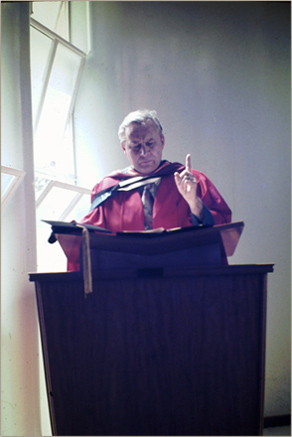Extract from Quarterly Communion at Biblical Seasons Annually (2001 ed.) – To read the full text, click “Download” below.
‘Seasonal Communion’ three or four times a year best harmonizes with the totality of Biblical teaching. Indeed, on the very first page of the Holy Bible, Gen. 1:14’s “seasons” or moo’a:diym are not just climatic — but also liturgical (as further seen in Lev. 23:4-37 etc.).
This is further evident, also because Gen. 1:14 — just like Lev. 23:4-37 too — was infallibly inscripturated by God and through Moses. Mk. 10:3-9 cf. Ex. 23:14f. This was done for the benefit of regulating the worship of the true covenant people — and, indeed, for all time. Dt. 12:32; Est. 9:22; Rom. 15:2-4; I Cor. 11:23-29; Heb. 8:1-5.

